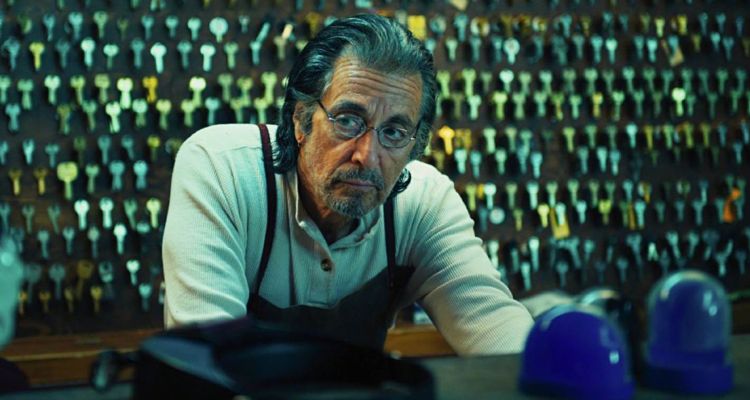 (2.5 / 5)
(2.5 / 5)
If you were looking for a word to describe Al Pacino’s acting career over the past two decades chances are “understated” would not be it.
Generally regarded as one of the finest actors ever to have graced the silver screen, it nevertheless seems sadly fitting that his only Oscar win came as the blind, bellowing Frank Slade in Scent of a Woman. What Pacino’s performance in David Gordon Green’s Manglehorn most recalls, however, is Heat — not his role as explosive, self-proclaimed ass man Lt. Vincent Hanna, but DeNiro’s calm, collected crim.
With his wire-rim spectacles and lank mullet, Pacino is a perfect fit for a slightly seedy ex-con, who nevertheless takes some small pride in his business, a lock and key store. The resignation he brings to just screwing in a replacement light-bulb, and the black leather gloves he wears while doing it, suggest a lifetime of bad regrets and bad choices.
Scripted by Paul Logan, and originally conceived as a surrealist crime thriller, Manglehorn is instead a character study of a man too stuck in the long-lost promise of past to find much to live for in the present.
There’s his cat, which is refusing to eat, and his polite flirtation with a demure bank teller, Dawn (Holly Hunter), but A.J. Manglehorn is still hopelessly in thrall to an old flame to whom he pens endless, rambling letters. He’s distant with his financier son, Jacob (Chris Messina), of whose whole existence Manglehorn seems to disapprove, and at his best when playing with his granddaughter.
As Green’s camera follows a white balloon up through the branches of an overhanging tree, the impression is that even this must surely slip away.
Arguably the working-class flip-side to Pacino’s portrayal of an over-the-hill rock star in Danny Collins, Manglehorn drinks, goes to buffets, and plays the slots, trying to be happy, but generally claims to be “losing hope in tomorrow”. Those around him, including drug-addict-turned-salon owner Gary (Spring Breakers director Harmony Korine), speak in whispered tones about a man who did magic as a coach. As it stands, though, he can’t even look past his own recalcitrance to acknowledge the woman sitting across the dinner table.
Logan and Green work in a slew of surreal scenarios, like a watermelon-smeared pileup or an impossibly fluid break-dance competition set to Explosions in the Sky’s experimental score, but it’s the image of Hunter’s Dawn — alternately downcast, annoyed, and teary — that stands as the biggest indictment of this inability to move on.
Green’s return to this particular theme may be less pressing than in last year’s Joe, but Pacino’s dour pessimism and desperate hope might just give you the (invisible) key to spring-cleaning your own life.
